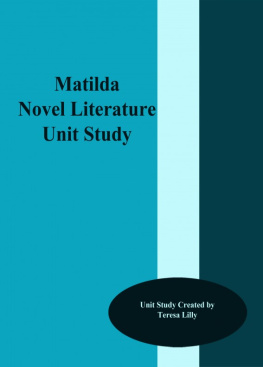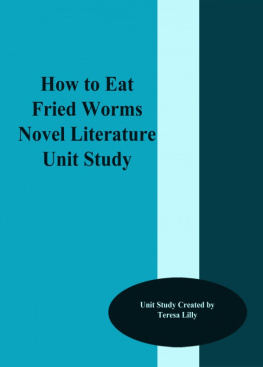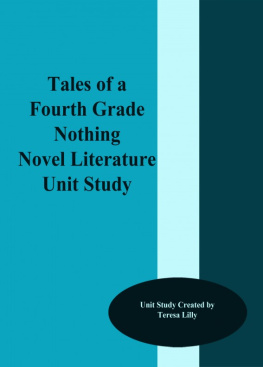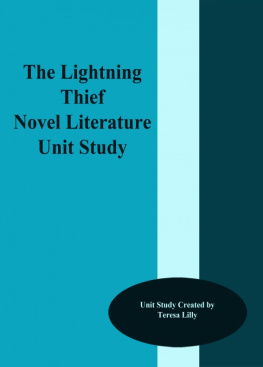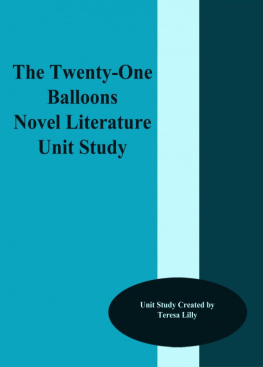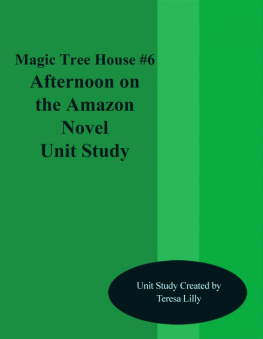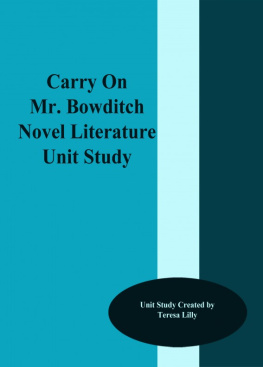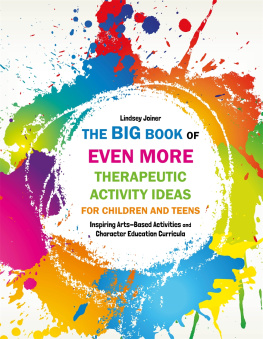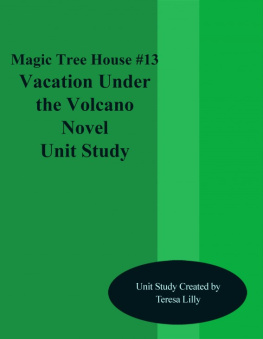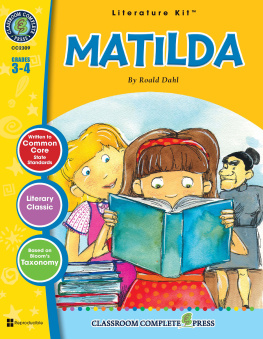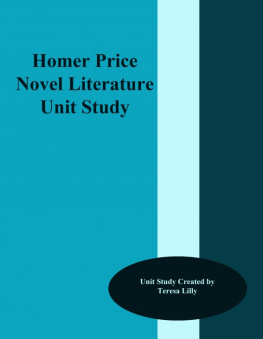Matilda Novel Literature Unit Study Smashwords Edition 2014 Unit Study Created by Teresa Lilly Also Sold by www.hshighlights.com This is a unit study only. The novel is NOTincluded in this unit study. HOW TO DO USE THIS LESSON To use this lesson have each student use aspiral notebook to write their answers in. This unit study is setup to divide the book so that there are up to 10 lessons. Eachlesson also has a variety of activities that can be done for thosechapters. 1. 1.
Have the student read the chapters thatare assigned for the lesson 2. For each lesson have the student do the Activities for the lesson (so these activities will be done 10 timeseach) Time Line Activity Encyclopedia Skills Activity, Journal Activity, Vocabulary Activity, Sequencing Activity, Handwriting Activity, Main Idea Activity, Prediction Activity, Comparison Activity 3. Have the student do Skills assigned to the lesson: Literature Skill Creative Writing Skill Writing Skill Poetry Writing Skill Newspaper Writing Skill Poster Board Activity When the Newspaper writing activities arecomplete, have the student type them out and place them on twolarge poster boards to represent a newspaper lay out. 4. Have the student do the Fill Ins for the assigned lesson: Fill in the blank True and False Multiple Choice Comprehension When all activities are done for one lesson,go on to the next lesson. Here are the Activities.
Do all 10 for eachlesson (so each of these will be done 10 times) 1: Time LineActivity: Have the student use the bookthey are studying to fill out a time line indicating when anythingnew, interesting or important happens in the book. 2: Encyclopedia: Choose one subject from this lesson thatinterested you and look it up on the internet or in anencyclopedia. Write three or more interesting facts about thesubject. 3: Journal: Create a journal booklet using folded linedpaper . Imaginethat you are one of the characters from the story. After readingthe lesson, write a short journal entry in your journal tellingwhat happened from your characters point of view.
Draw a pictureto go along with your entry. 4: Vocabulary: Have the student look up the vocabulary wordsfrom the list for this lesson. On two index cards write one word.On one card write the definition of the word, the Antonym and howmany Syllables the word has. On the other card, write the sameword. Write a full sentence using this word and write the Synonymof the word. Do this for all the vocabulary words.
Place cards inan envelope which can be glued into the students notebook or ontothe lap book to save to play concentration at the end of thelesson. 5: Sequencing: At the end of the lesson cut out two strips ofpaper about one inch tall and eight inches long. Have the studentwrite two of the main events on these two strips. Save them in anenvelope which can be glued onto the lap book or in the notebook.At the end of the book, these strips can be taken out and thestudent can try to arrange them in the correct order as theyoccurred in the story. 6: Handwriting: Have the student pick their favorite sentencethat they read in this lesson. 7: MainIdea : In a sentence or two, write what wasthe main idea of this part of the book. 8: Prediction: In a sentence or two, predict what you think willhappen in the next chapter. 9: Comparison: In a sentence or two, compare two things in thislesson. 9: Comparison: In a sentence or two, compare two things in thislesson.
Tell what makes them alike and what makes themdifferent. 10: Fact or Opinion: Write one sentence that is a fact about thelesson and one sentence that is an opinion about thelesson. Here are the Activities For Each Lessonwhich includes Literature Skills, Creative Writing, Poetry Writing,Newspaper Writing, and Poster Board Activity Lesson 1 LiteratureSkills Activities Main Character: Have thestudent draw a middle circle with several circles around theoutside of it. Label the middle circle Main Character. Label theother circles such things as Physicalappearance, Who they relate to, Worries or Concerns and Your opinion ofthem . Now have the students write insidethe circle information about the main character that tells aboutthe subject that each circle represents.
Lesson 1 Creative Writing Activities Letter: Have the student write a letter toone of the characters in the story. Make sure the student usescorrect letter format. Lesson 1 Writing Skills Activities Description: Descriptive writing uses wordssuch as color and texture to describe something. Have the studentwrite a description of a person, place or thing from thislesson. Lesson 1 Poetry Skills Activities Couplet: Couplet is a two line poem with afun and simple rhyming pattern. Each line has the same number ofsyllables and their endings must rhyme with one another.
Humor isoften used in couplets. Sample: If a seed could have its own way It would grow big in just one day. Lesson 1 Newspaper Writing Activities Editorial: An editorial is written by theeditor of the newspaper. In an editorial the editor gives anopinion of something. Imagine you are the editor of your newspaper.Write your opinion of something that happened in the book sofar. Lesson 1 Poster Board Activities Collage: Have students print out picturesfrom the internet of characters or events or pictures thatrepresent things from the story.
Cut them out and glue them allover a poster board in a collage overlapping fashion. Lesson 2 LiteratureSkills Activities Main Setting: Have the student write aparagraph describing the main setting of the story. Now have themwrite a sentence describing another setting in the story that isnot the main setting. Lesson 2 Creative Writing Activities Fairy Tale: Fairy Tales are fanciful tales oflegendary deeds and creatures, usually intended for children. Havestudent write a fairy tale involving one of the characters from thestory and illustrate it. Lesson 2 Writing Skills Activities Persuasion: Persuasion is a way of writing,in which you convince someone of something.
Write to try topersuade someone in the story to do something differently than theydid in the story. Lesson 2 Poetry Skills Activities Triplet: Triplets are three-lined poems thatrhyme. Each line has the same number of syllables. Sample: The bunny hops and hops Til all at once she stops to munch some carrot tops. Lesson 2 Newspaper Writing Activities Travel: Imagine you write the travel columnfor a newspaper. Write a short article about traveling to the areawhere this book takes place.
Find one or two photos on the internetthat reminds you of this place and place it on the newspaper layout poster as well. Lesson 2 Poster Board Activities Theater Poster: Have the student create aposter that may be found outside of a theater which is putting on aplay of this book. Lesson 3 LiteratureSkills Activities Main Problem: Have the student draw a largerectangle at the top of a page. Under that draw two smallrectangles. In the large rectangle write what the main problem inthe story seems to be. In the smaller rectangles write what some ofthe smaller problems were.
Lesson 3 Creative Writing Activities Mystery: Have the student write a mysterythat involves the characters or events from the story. Lesson 3 Writing Skills Activities Expository: Expository writing is writingstrictly to inform. Write an expository piece that informs someoneabout an event that happened in the story. Lesson 3 Poetry Skills Activities Quinzain: Quinzains are unrhymed three linepoems that contain 15 syllables. The pattern is: The first line is7, the second is 5 and the third is 3. The first line makes astatement and the next two lines ask a question about thesubject.
Sample: I like to write poetry Would you like to write poetry? Lesson 3 Newspaper Writing Activities Want Ads: Have the student create severalwants ads that characters in the story might post in a newspaper oranswer. Lesson 3 Poster Board Activities Wanted Poster: Have the student create aWanted by the Law, poster for one of the villains in thestory. Lesson 4 LiteratureSkills Activities Possible Solutions: Have the student drawwrite a sentence telling what the main problem is so far. Then havethem write three possible solutions for that problem. Lesson 4 Creative Writing Activities Science Fiction: ScienceFiction stories take place in the farfuture usually in space or on earth in an advanced society. Havethe student write a science fiction story about the future of oneof the characters and illustrate it.
Next page
